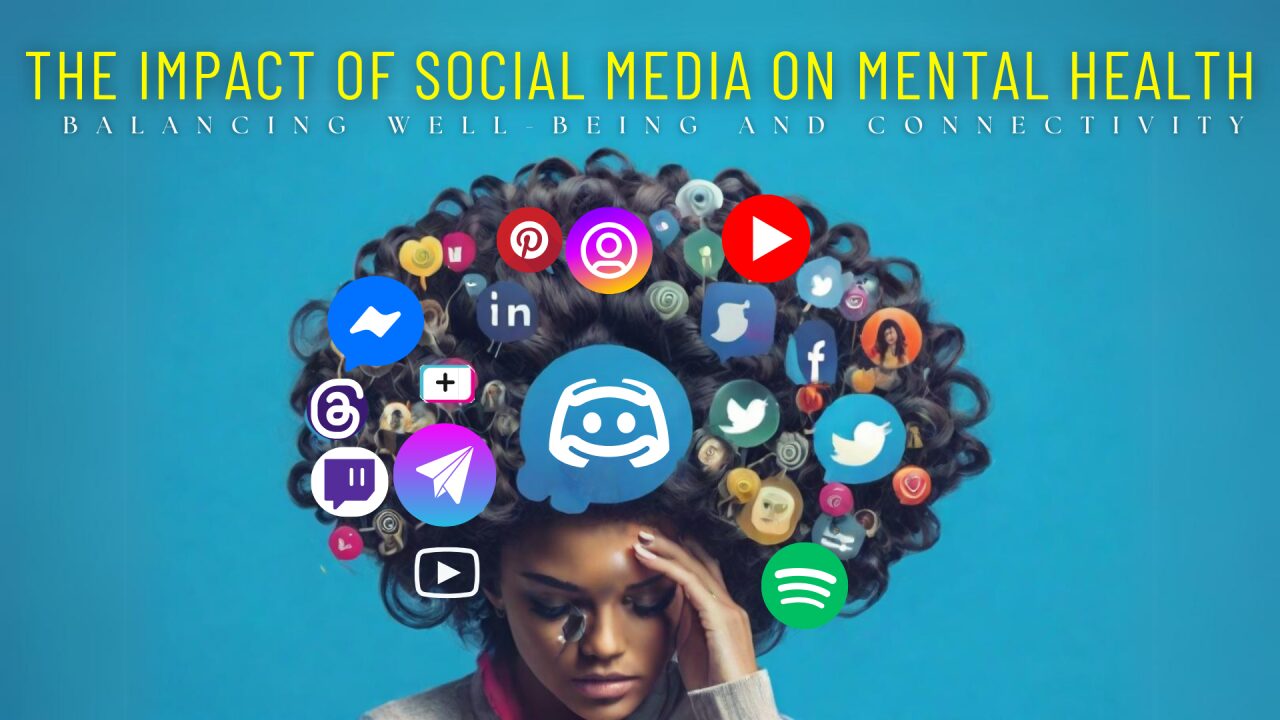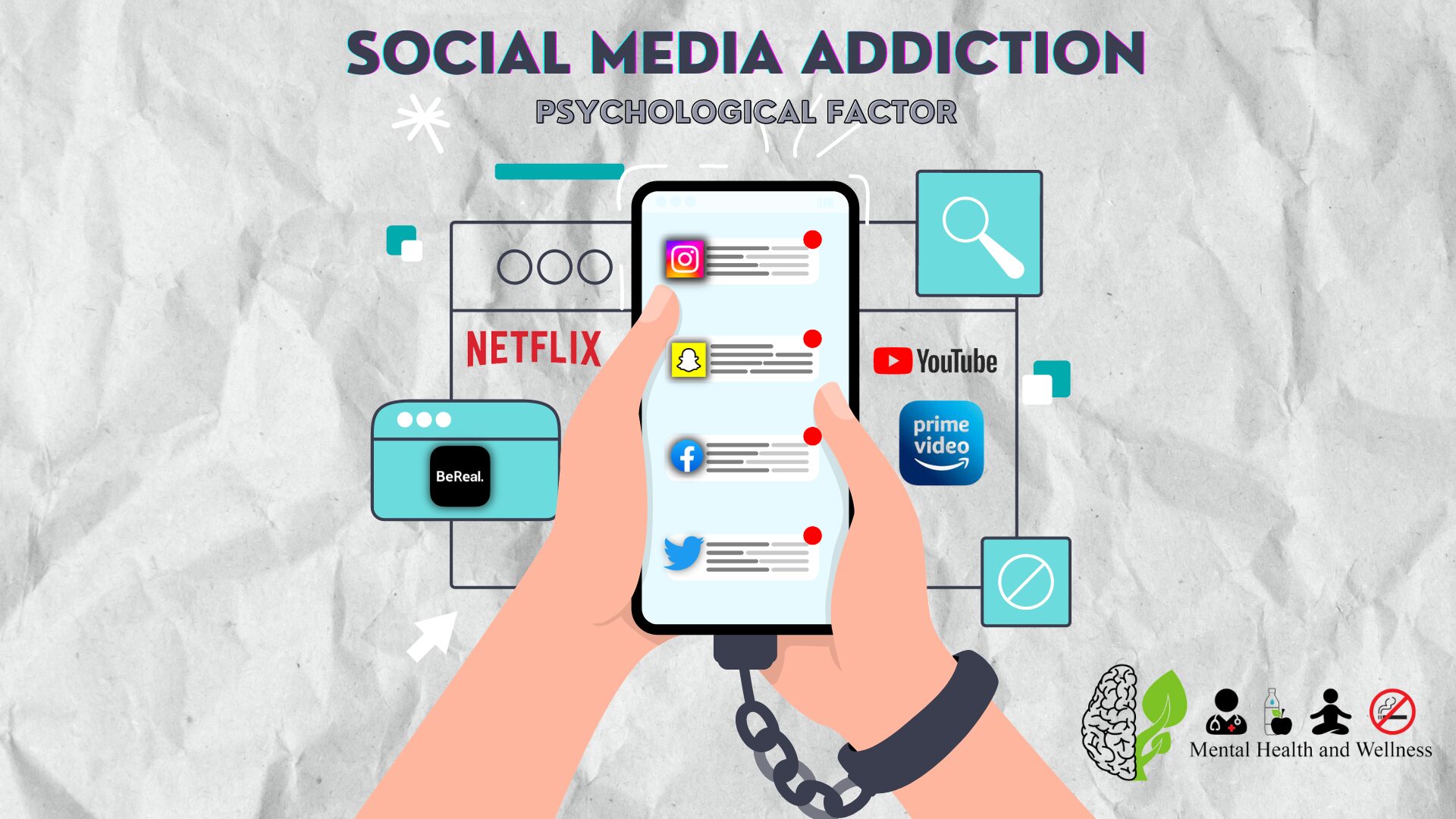
We all know the feeling: mindlessly scrolling through a never-ending feed of perfectly curated pictures, funny memes, and carefully crafted updates on other people’s lives. Social media, a constant companion in our pockets and on our desks, has become an undeniable force in our daily lives. But what about the impact of social media on mental health? Is it a source of connection and community, or a breeding ground for anxiety and comparison?
The truth, like most things in life, is a nuanced blend of both. Social media can be a wonderful tool for staying connected with loved ones, discovering new ideas, and fostering a sense of belonging. However, excessive use and the carefully crafted online personas we encounter can have a negative impact on our mental well-being. So, how do we navigate this digital landscape in a way that supports our mental health?
The Double-Edged Sword: How Social Media Affects Us
Social media interacts with our brains in powerful ways, influencing our emotions, self-esteem, and even our sleep patterns. Here’s a closer look at the potential benefits and drawbacks:
- Connection and Community: Social media platforms can connect us with friends and family who live far away, offer a sense of belonging to online communities with shared interests, and provide a platform for expressing ourselves creatively.
- The Comparison Trap: The carefully curated highlight reels of other people’s lives can fuel feelings of inadequacy and social comparison. We might start believing everyone else’s life is perfect, while ours falls short.
- Anxiety and FOMO (Fear of Missing Out): The constant stream of updates and notifications can create a sense of anxiety and fear of missing out (FOMO).
- Sleep Disruption: The blue light emitted from our devices and the late-night scrolling habits can disrupt sleep patterns, leading to fatigue and decreased concentration.
- Positive Reinforcement: Social media platforms leverage our desire for social connection and approval. Likes, comments, and shares trigger the release of dopamine, a neurotransmitter associated with pleasure and reward. This positive reinforcement can lead to compulsive checking habits.
Understanding how social media interacts with our brains is the first step towards developing healthy habits and minimizing the negative impacts.

Breaking Free from the Scroll: Strategies for a Balanced Approach
So, how do we strike a healthy balance and use social media in a way that supports our mental well-being? Here are some practical tips:
- Be Mindful of Your Time: Set time limits for your social media usage and stick to them. Utilize tools offered by most platforms to track your screen time and set usage limits.
- Curate Your Feed: Unfollow accounts that make you feel bad about yourself or trigger negative emotions. Instead, follow accounts that inspire you, educate you, or make you laugh.
- Focus on Real-Life Connections: Don’t let social media replace real-life interactions. Plan in-person meetups with friends and family, and prioritize face-to-face interactions.
- Challenge the Perfection: Remember, social media is a highlight reel. People only share their best moments online. Don’t compare your behind-the-scenes reality to someone else’s carefully curated online persona.
- Practice Gratitude: Take some time each day to appreciate the good things in your own life, big or small. Gratitude journaling is a great way to cultivate a positive mindset.
- Prioritize Sleep: Establish a regular sleep schedule and avoid using electronic devices for at least an hour before bedtime. Create a relaxing bedtime routine to wind down and ensure quality sleep.
- Seek Professional Help: If social media is causing significant anxiety, depression, or other mental health concerns, don’t hesitate to seek professional help. A therapist can provide guidance and support in developing healthy coping mechanisms.
By implementing these strategies, we can take control of our social media habits and ensure they don’t negatively impact our mental well-being. Remember, social media is a tool, and like any tool, it’s up to us to use it responsibly.
Beyond the Likes: Fostering Genuine Connections in a Digital World
Social media can be a powerful tool for connection, but it’s important to remember that real, in-person interactions are vital for our emotional well-being. Here are some ways to cultivate genuine connections beyond the like button:
- Engage in Meaningful Conversations: Instead of just liking or commenting on posts, engage in meaningful conversations with friends and family online. Ask questions, share your own thoughts and experiences, and make an effort to connect on a deeper level.
- Plan Offline Activities: Use social media to make plans for real-life meetups with friends and family. Organize game nights, outings, or simply coffee dates to strengthen your offline bonds.
- Join Local Groups: Social media platforms can be a great way to find local groups or communities that share your interests. Joining these groups can be a fantastic way to meet like-minded people and build meaningful connections in your local community.
- Volunteer Your Time: Volunteering is a rewarding way to give back to your community and connect with others who share your values. There are numerous opportunities to volunteer your time and skills, fostering social connection while making a positive impact.
By prioritizing meaningful connections beyond the digital sphere, we can ensure that social media complements, rather than replaces, real-life interactions.
Read Similar Posts
- The Psychology of Decision-Making: Why We Choose What We Choose
- The Silent Thief: How Sleep Deprivation Wreaks Havoc on Your Body
- From Passion to Paycheck: Turning Your Creative Side Hustle into a Profitable Venture
Conclusion: Striking a Healthy Balance
Social media isn’t inherently bad. It can be a source of connection, entertainment, and even inspiration. However, it’s crucial to be mindful of its potential drawbacks and develop healthy habits to navigate the digital landscape responsibly. By setting boundaries, prioritizing real-life connections, and challenging unrealistic portrayals online, we can ensure social media serves as a tool that enhances our lives, not detracts from them. Remember, you hold the power to control your social media experience. So, put down the phone sometimes, connect with the real world around you, and prioritize your mental well-being.
FAQs: Demystifying Social Media and Mental Health
FAQ 1: Is it okay to take breaks from social media?
Absolutely! Taking breaks from social media can be incredibly beneficial for your mental health. Schedule digital detox periods, turn off notifications, and disconnect to reduce stress and anxiety.
FAQ 2: What are some signs that social media is negatively impacting my mental health?
If you find yourself feeling anxious, depressed, or envious after using social media, or if you struggle to control your screen time, these might be signs of a negative impact. Consider taking a break and reevaluating your social media habits.
FAQ 3: How can I talk to my friends and family about their social media use?
Have an open and honest conversation. Express your concerns and offer support. Suggest taking breaks together or engaging in alternative activities.
FAQ 4: Are there any apps that can help me manage my social media use?
There are several apps available that can help you track your screen time, set time limits for specific platforms, and even block distracting social media apps during certain times of the day.
FAQ 5: What resources can I access if I need help with social media addiction?
Numerous online resources and mental health organizations offer support for individuals struggling with social media addiction. Don’t hesitate to seek professional help if needed.


